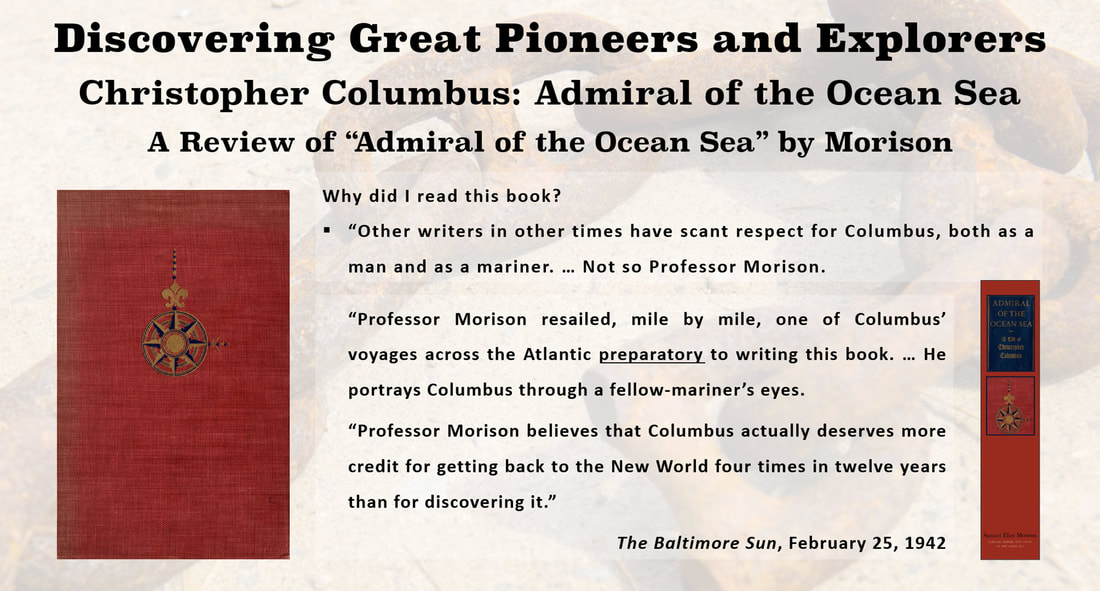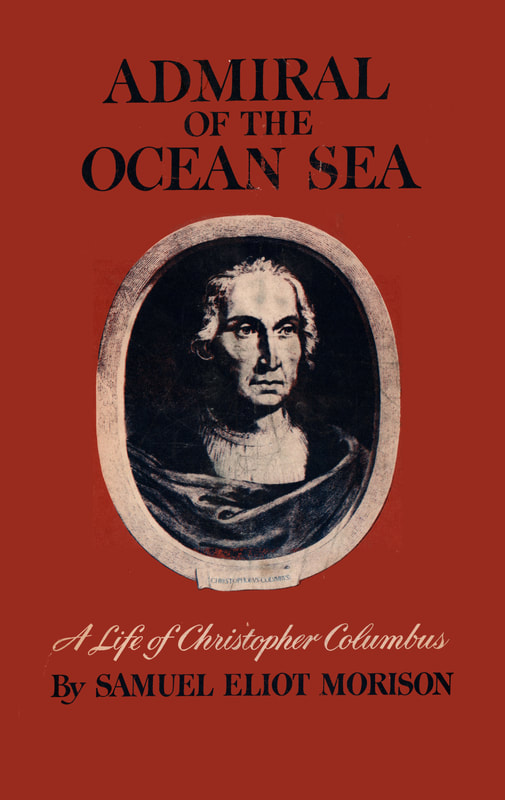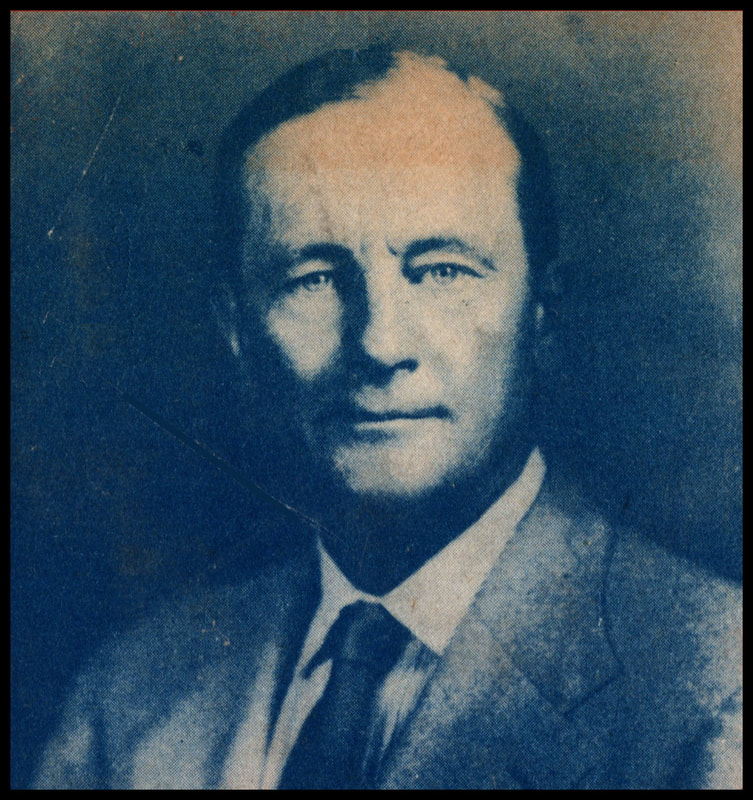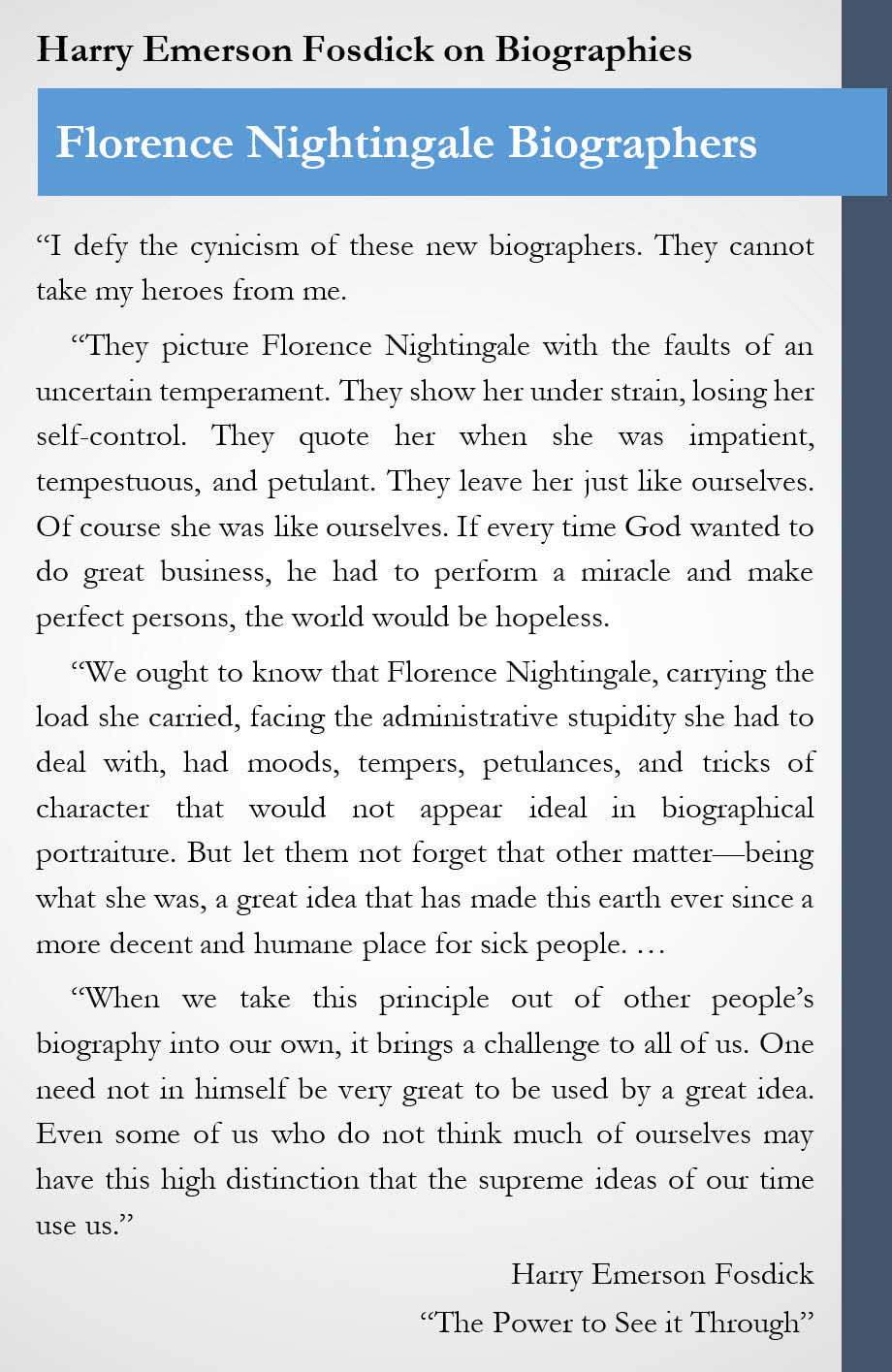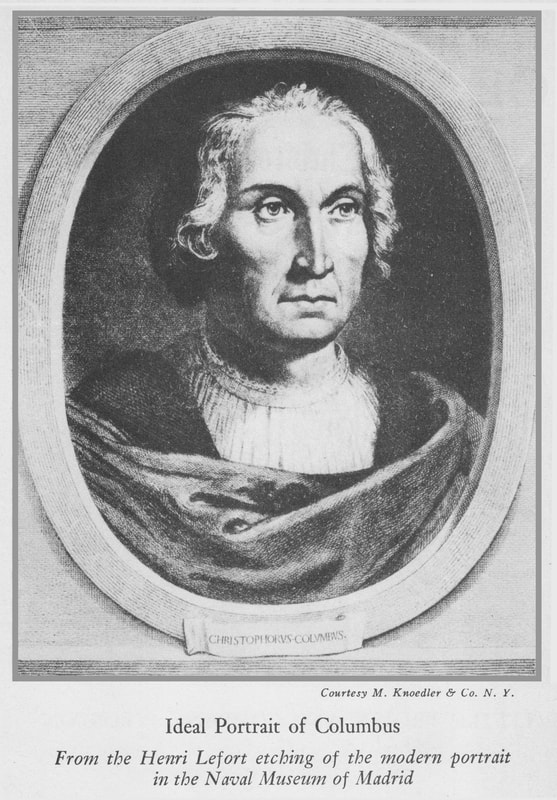A Review of “Admiral of the Ocean Sea” by Samuel Eliot Morison
- Reviews of the Day: 1942–43
- Selected, Composite Insights from “Admiral of the Ocean Sea”
- This Author’s Thoughts and Perceptions
Reviews of the Day: 1942–43
This was a book that won the 1942 Pulitzer for a distinguished American biography. Obviously, there was a large selection of reviews leading up to the award in late 1942. Here are a few:
|
“Few men, if any, have suffered more at the hands of their well-meaning biographers than has Christoforo Colombo, Genoese born Catholic Christian. … Savants and historiographers have discoursed much concerning the ‘mystery’ of Columbus as if his nationality, personality and education were inexplicable enigmas. Such speculations are futile since, in truth, there was never any ‘mystery’ about Columbus save the one devised by pettifogging antiquarians.
“To frustrate the obscurantists comes now Morison’s ‘Admiral of the Ocean Sea.’ … He read all the records, finished the dusty research and then sailed every league traversed by Columbus in his four voyages of discovery. He followed the seaways, entered the harbors, threaded the straits, and gazed in awe suspense as distant peaks pushed their purple summits above the horizon of the summer sea. “Fiction, however well done, has seldom been more interestingly written than this serious and important book.” Laura Scott Meyers, “The Book Shelf,” The El Paso Herald-Post, 1942
|
Front dust cover of “Admiral of the Ocean Sea” by Samuel Eliot Morison.
|
“ ‘Admiral of the Ocean Sea’ by Samuel Eliot Morison, a biography of Christopher Columbus, will undoubtedly take its place among the nation’s great books of its kind. … To think of writing a biography of a naval hero and discoverer 450 years after he had blazoned his name, sounds like an impossible task….
“Mr. Morison is a ‘discoverist’—indicated in all of his writings. A historical scholar of ‘super’ variety, he has always been equally fascinated by the sea. As far as may be known he followed the course of Columbus on the Harvard-Columbus expedition going through the waters sailed by the great navigator on four voyages. …
“Amazing features of the trip—approach to the Pacific Ocean, missed by only a short run; the keeping of two ship logs, one inaccurate for the disturbed crew, one supposedly true for himself, and the troubles in colonizing—highlight the tale, which has freshness, glints of humor and a style unexcelled in present-day biography.”
“Mr. Morison is a ‘discoverist’—indicated in all of his writings. A historical scholar of ‘super’ variety, he has always been equally fascinated by the sea. As far as may be known he followed the course of Columbus on the Harvard-Columbus expedition going through the waters sailed by the great navigator on four voyages. …
“Amazing features of the trip—approach to the Pacific Ocean, missed by only a short run; the keeping of two ship logs, one inaccurate for the disturbed crew, one supposedly true for himself, and the troubles in colonizing—highlight the tale, which has freshness, glints of humor and a style unexcelled in present-day biography.”
Ethelyn Sexton, “The Book Shelf,” The Lansing State Journal, 1942
“Before writing … the story of Christopher Columbus which won for its author the 1942 [Pulitzer] prize for a distinguished American biography, Samuel Eliot Morison led an expedition which sailed the seas Columbus sailed, retracing the 'Great Admiral’s' voyages to the New World."
Editorial Section, “Pulitzer Prize Awards for 1942,” The St. Louis Post-Dispatch, 1943
Selected Insights from "Admiral of the Ocean Sea"
- Why Travel Columbus' Exact Routes?
|
“No biographer of Columbus appears to have gone to sea in quest of light and truth. And you cannot write a story out of these fifteenth- and sixteenth-century narratives that means anything to a modern reader, merely by studying them in a library with the aid of maps. Such armchair navigation is both dull and futile.
“It may be compared with those ancient books on natural science that were compiled without field work or experimentation. … The emphasis of this book is on what Columbus did, where he went, and what sort of seaman he was.” - The "Mystery" of Columbus: A Modern Man of the Middle Ages “In his faith, his deductive methods of reasoning, his unquestioning acceptance of the current ethics, Columbus was a man of the Middle Ages, and in the best sense.
|
Portrait of Samuel Eliot Morison from “Admiral of the Ocean Sea.”
|
“In his readiness to translate thought into action, in lively curiosity and accurate observation of natural phenomena, in his joyous sense of adventure and desire to win wealth and recognition, he was a modern man.
“This dualism makes the character and career of Columbus a puzzle to the dull-witted, a delight to the discerning.”
“This dualism makes the character and career of Columbus a puzzle to the dull-witted, a delight to the discerning.”
- From Those Who Knew Columbus: His Character and Characteristics
“He was affable and cheerful in speaking; … eloquent and boastful in his negotiations; he was serious in moderation, affable with strangers, and with members of his household gentle and pleasant. He was most impressive in his port and countenance, a person of great state and authority. … He was sober and moderate in eating, drinking, clothing and footwear; it was commonly said that he spoke cheerfully in familiar conversation, or with indignation when he gave reproof or was angry with somebody: ‘May God take you.’ … He hated blasphemy and profane swearing. …
“He was a gentleman of great force of spirit, of lofty thoughts. …
“Certain defects will appear, especially lack of due appreciation for the labors of his subordinates; unwillingness to admit his shortcomings as a colonizer; a tendency to complain and be sorry for himself whenever the Sovereigns, owing to these shortcomings, withdrew some measure of their trust in him.”
“He was a gentleman of great force of spirit, of lofty thoughts. …
“Certain defects will appear, especially lack of due appreciation for the labors of his subordinates; unwillingness to admit his shortcomings as a colonizer; a tendency to complain and be sorry for himself whenever the Sovereigns, owing to these shortcomings, withdrew some measure of their trust in him.”
This Author’s Thoughts and Perceptions
My education on Christopher Columbus was severely wanting. It, like most people’s insights, was reduced to a mariner discovering the New World in “1942 by sailing the ocean blue.” If anyone had told me that Columbus sailed to the Americas four times in twelve years, and then described the conditions he underwent to achieve this—both economic, political, spiritual, and physical, I would have said: “Really, no one taught me that!” No one taught me the story of the pioneer, the discoverer, the explorer and the leader … and the hardships he faced as a result.
And so it is, our self-education remains our personal responsibility. Don’t let others mislead you—even me. My advice is that if you want to understand Christopher Columbus—the good and questionable, start with this book.
And so it is, our self-education remains our personal responsibility. Don’t let others mislead you—even me. My advice is that if you want to understand Christopher Columbus—the good and questionable, start with this book.
|
In my following perceptions, I am only going to quote one insight from the book. It is what pulled me into this biography. It duplicates what was written by Harry Emerson Fosdick about new biographies and those biographers who lose their sense of perspective—in Fosdick’s case he wrote about a Florence Nightingale biography [See sidebar].
This is what Samuel Eliot Morison wrote of his contemporary biographers and their “studies” of Christopher Columbus: “The ‘scientific’ historians of the last century tended to regard their predecessors either as hopeless amateurs or as incorrigible liars upon whom no dependence should be placed. My own experience in studying and writing history has impelled me almost to the opposite pole: to rely on contemporaries unless they are demonstrably false. …
“The judgment of a man’s peers may not be final, but it is based on a myriad of facts (and fancies too), on things both seen and heard that are now forever lost. “Contemporary biographers and historians should be controlled by documents, if you have them, and discounted for bias, if bias can be detected. They are often irritatingly silent on questions that we moderns particularly wish to have answered. … |
Dr. Harry Emerson Fosdick's perspective on biographers who try to "take his heroes from him."
|
“The reader will have ample opportunity to judge the Discoverer’s character for himself. Physical courage, which the early historians took for granted, he will find in plenty; and untiring persistence and unbreakable will. Certain defects will appear, especially lack of due appreciation for the labors of his subordinates; unwillingness to admit his shortcomings as a colonizer; a tendency to complain and be sorry for himself whenever the Sovereigns, owing to these shortcomings, withdrew some measure of their trust in him.
“These were the defects of the qualities that made him a great historical figure. For he was not, like a Washington, a Cromwell, or a Bolivar, an instrument chosen by multitudes to express their wills and lead a cause; Columbus was a Man with a Mission, and such men are apt to be unreasonable and even disagreeable to those who cannot see the mission. …
“He was man alone with God against human stupidity and depravity, against greedy conquistadors, cowardly seamen, even against nature and the sea.”
“These were the defects of the qualities that made him a great historical figure. For he was not, like a Washington, a Cromwell, or a Bolivar, an instrument chosen by multitudes to express their wills and lead a cause; Columbus was a Man with a Mission, and such men are apt to be unreasonable and even disagreeable to those who cannot see the mission. …
“He was man alone with God against human stupidity and depravity, against greedy conquistadors, cowardly seamen, even against nature and the sea.”
This is a Pulitzer winning insight; and personally, it feels as though Dr. Fosdick should have also been nominated for a Pulitzer for his insight pulled from the chapter “The Ideas that Use Us” from his book The Power to See it Through [See Sidebar above]. Following Fosdick’s thought, Florence Nightingale and Christopher Columbus were two kindred spirits who were “used by an idea” to accomplish great missions in different fields.
|
Today there are those who desire to blame Columbus for all the ills that followed his discovery of the Americas. These critics make him their undeserved lighting rod. Those who place blame on individuals who followed their pioneering spirits and dreams, I suppose, will also blame anything negative that comes in the future from man’s journey into space on Neil Armstrong’s “one small step for a man … one giant leap for mankind.”
This biography is an amazing read with enough accurate detail from Columbus’ journeys and references to the original texts that Samuel Morison translated himself—because most translations were inaccurate, to convince most readers that they are getting a detailed, accurate description of not only the journeys of Christopher Columbus but of the man. A man who was used by an idea … to accomplish a great mission. Cheers, - Peter E. |
